Anger Management Worksheets Results
Understanding and Reducing Angry Feelings - Texas Christian University
the antecedents of anger to help participants become more aware of their physical cues and emotional responses to anger and frustration. Group leader discussion questions are provided to help encourage clients to talk about the situational aspects of anger and strategies for self-regulation. Source: Neurobehavioral Treatment (UCLA Matrix
https://url.theworksheets.com/15xh322 Downloads
Preview and Download !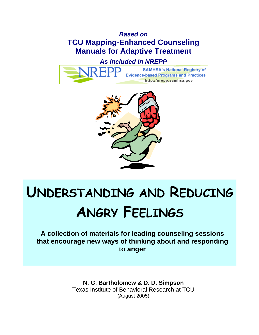
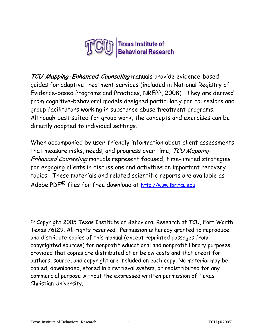
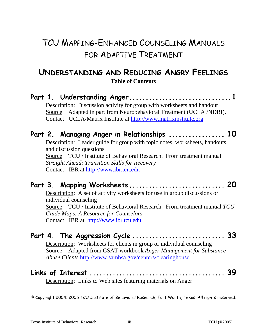
The Anger Aggression Workbook - Whole Person
anger management abilities. In the past twenty years, many research studies have focused on the value of self-reflection and journaling as a way of exploring personal characteristics, identifying ineffective behaviors and examining thoughts and feelings that lead to ineffective behaviors. This book
https://url.theworksheets.com/uf3148 Downloads
Preview and Download !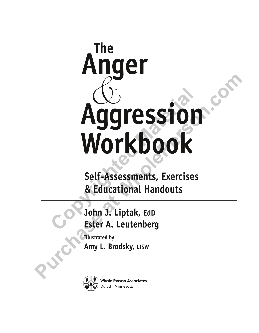

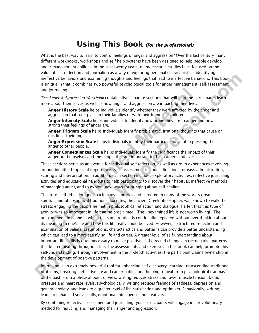
Anger Discussion Questions - Therapist Aid
Anger builds slowly, and if you aren’t paying attention, it can happen entirely outside of your awareness. Can you think of a time when your anger caught you by surprise? In retrospect, were there any warning signs you could’ve picked up on? 2 ;
https://url.theworksheets.com/5p4j206 Downloads
Preview and Download !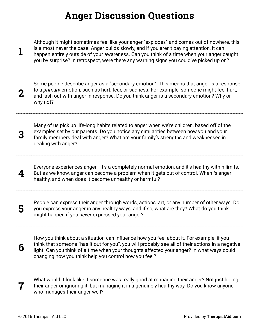


Anger Management Workbook and Curriculum - Growth Central
He comes to anger management from a somewhat unusual direction in that one of his advanced degrees is in the field of divinity. Perhaps that is why he is very good at combining standard behaviorally and/or psychologically oriented interventions with more spiritually-focused ideas. Anger Management Workbook and Curriculum
https://url.theworksheets.com/1xh2233 Downloads
Preview and Download !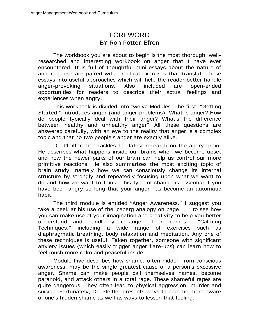
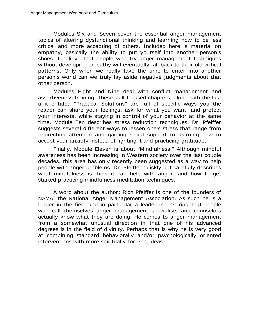
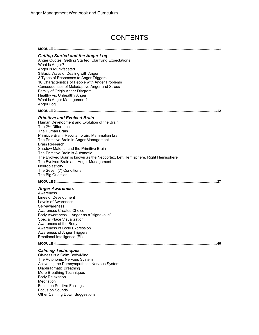
Personal Anger Assessment - Home - Focus on the Family
19–24 YOU KNOW HOW TO HANDLE ANGER Your responses indicate that you generally have a good handle on your anger. You are likely aware of what makes you angry, and tend to be intentional in processing your feelings of anger. You likely don’t experience too many difficulties from anger-related issues in your personal or professional life.
https://url.theworksheets.com/4bch101 Downloads
Preview and Download !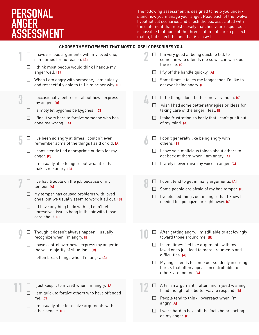
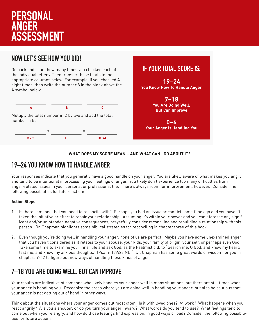
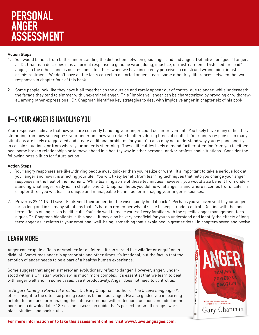
Anger Management Techniques - HCHC
Anger Management Techniques 1.Count to 20 before saying anything. 2.Leave the room for several minutes, or hours, if necessary, before discussing sensitive issues that may provoke your anger. 3.Write out a response to a problem before tackling it orally or in debate.
https://url.theworksheets.com/e4y822 Downloads
Preview and Download !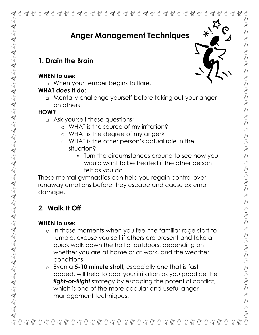
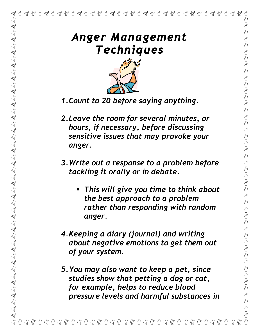
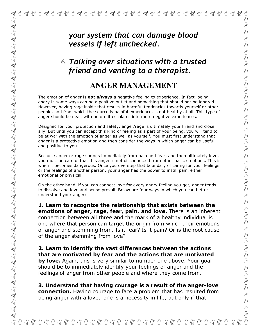
ANGER MANAGEMENT WORKBOOK - imhlk.com
Handling anger well can help you: • Overcome problems • Reach your goals • Stay healthy • Feel better about yourself But too much anger or uncontrolled anger can cause problems. Examples: • Problems in your relationships with family and friends • Problems at work • Legal and financial troubles • Physical and mental health problems
https://url.theworksheets.com/74og208 Downloads
Preview and Download !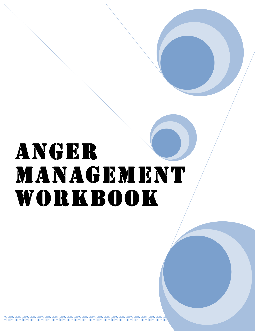
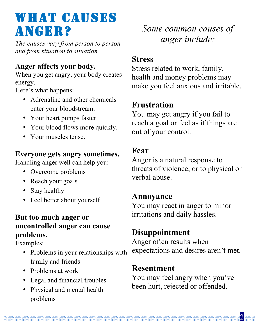
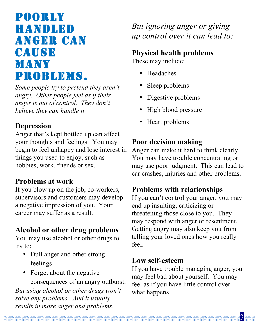
Anger Coping Strategies - Department of Health
This handout is designed to help you identify triggers and warning signs of anger, and strategies to help you manage this emotion. Keywords Anger, angry, anger management, coping, strategies, tips, CBT, cognitive, behavioural, therapy, CCI, handout, centre for clinical intervenitons, resource, free, information, sheet
https://url.theworksheets.com/3h0i151 Downloads
Preview and Download !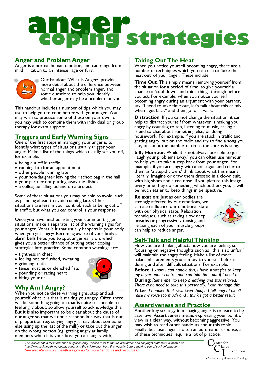


Anger - Mind
you regularly express your anger through unhelpful or destructive behaviour your anger is having a negative impact on your overall mental and physical health anger becomes your go-to emotion, blocking out your ability to feel other emotions you haven't developed healthy ways to express your anger
https://url.theworksheets.com/14it112 Downloads
Preview and Download !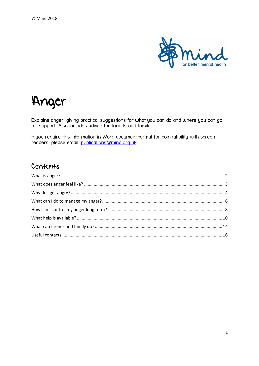
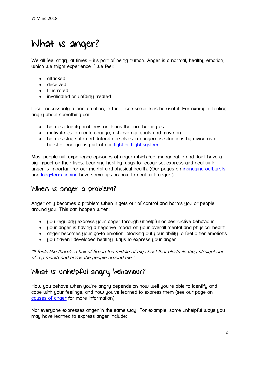
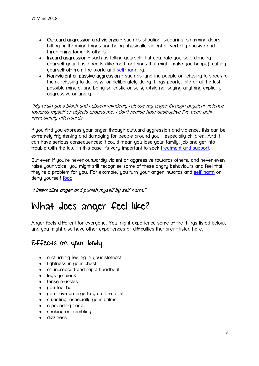
STRENGTHENING FAMILIES PROGRAM, AGES 7–17 LESSON 6 SUMMARY POSTER ...
“Tracking and Taming the Anger Monster” handouts. a) Make goals to reduce anger outbursts. b) Using pretend situations, practice positive responses for tense or recurring situations. c) Reward appropriate behaviors. d) Use “Step Out of Anger” game. 3. Use the “Emotion Coaching” sheet to help your child identify and discuss feelings.
https://url.theworksheets.com/70tg170 Downloads
Preview and Download !


<< Previous results Next results >>